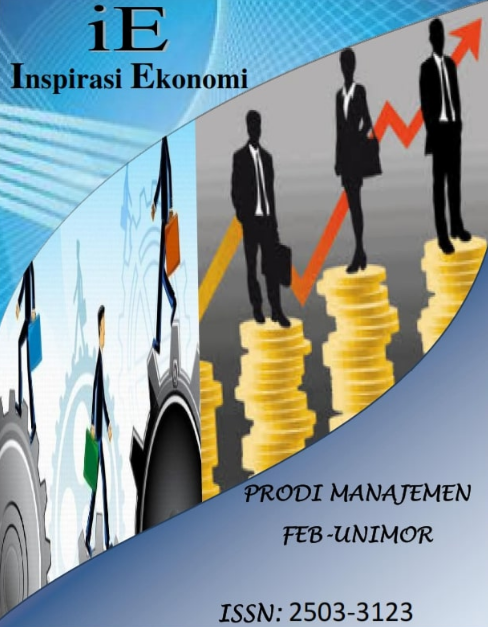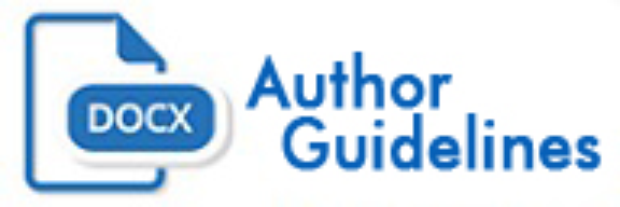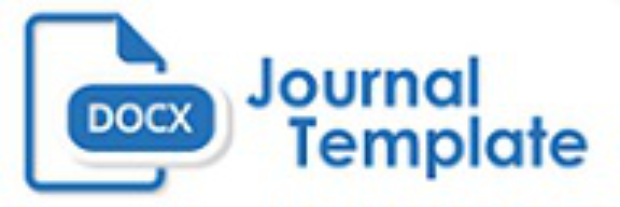RELATIONSHIP OF INTERNAL AUDITOR INDEPENDENCE, INTERNAL AUDIT EFFECTIVENESS AND SHARIA COMPLIANCE (CASE STUDY ON SHARIA BANK IN EAST JAVA)
DOI:
https://doi.org/10.32938/ie.v5i4.6250Keywords:
Internal Auditor Independence, Internal Audit Effectiveness, Sharia ComplianceAbstract
This study aims to analyze the impact of the effectiveness of internal audit in improving sharia compliance in this case effectiveness is highly dependent on the independence of internal auditors. The subjects of this research are all internal auditors who work for Islamic banks in East Java province. The sample used in this study was taken through purposive sampling method. This study uses a type of quantitative research with hypothesis testing. In this study using Partial Square Structural Equation Modeling (PLS-SEM) analysis used for validity tests and reliability tests with the help of analytical tools in the form of Smart-PLS 4.0 software. The results of this study indicate that the internal auditor independence variable has no significant effect on sharia compliance. The internal audit effectiveness variable has a significant effect on sharia compliance. The internal auditor independence variable has a significant influence on the effectiveness of the internal audit. And the internal auditor independence variable has a positive effect on Sharia compliance by means of internal audit effectiveness.
References
Alam, M. K., Tabash, M. I., Thakur, O. A., Rahman, M. M., Siddiquii, M. N., & Hasan, S. (2023). Independence and effectiveness of Shariah department officers to ensure Shariah compliance: evidence from Islamic banks in Bangladesh. Asian Journal of Accounting Research, 8(1), 15–26. https://doi.org/10.1108/AJAR-01-2022-0022
Algabry, L., Alhabshi, S. M., Soualhi, Y., & Alaeddin, O. (2020). Conceptual framework of internal Sharīʿah audit effectiveness factors in Islamic banks. ISRA International Journal of Islamic Finance, 12(2), 171–193. https://doi.org/10.1108/IJIF-09-2018-0097
Alzeban, A., & Gwilliam, D. (2014). Factors affecting the internal audit effectiveness: A survey of the Saudi public sector. Journal of International Accounting, Auditing and Taxation, 23(2), 74–86.
Anshori, M., & Iswati, S. (2019). Metodologi penelitian kuantitatif: edisi 1. Airlangga University Press.
Bednarek, P. (2018). Factors affecting the internal audit effectiveness: A survey of the Polish private and public sectors. Efficiency in Business and Economics: Proceedings from the 7th International Conference on Efficiency as a Source of the Wealth of Nations (ESWN), Wrocław 2017, 1–16.
Bukair, A. A., & Rahman, A. A. (2015). The effect of the board of directors’ characteristics on corporate social responsibility disclosure by Islamic banks. Journal of Management Research, 7(2), 506.
Etika, C., Liya Ermawati, & Junaini Bustami. (2022). Analisis Pengaruh Independensi Auditor dan Pendidikan Auditor Terhadap Kualitas Audit Syariah Pada Perbankan Syariah Di Indonesia. Syarikat: Jurnal Rumpun Ekonomi Syariah, 5(1), 17–28. https://doi.org/10.25299/syarikat.2022.vol5(1).9515
Firdaus, F., Saifullah, S., Huda, N., & Firhan, I. (2021). Analisis Rasio Profitabilitas Pada PT. Bank Muamalat Tbk. Tahun Periode 2015-2019. Jurnal Proaksi, 8(1), 113-123.
Geovani, A. (2023). Pengaruh Kompetensi Terhadap Effektivitas Auditor Internal Syariah. Journal of Tax & Business, 4(1), 1–5.
Ghani, N. L. A., Ariffin, N. M., Rahim, A., & Rahman, A. (2019). The Measurement of Effective Internal Syariah Audit Function in Islamic Financial Institutions. International Journal of Economics, Management and Accounting, 27(1), 141–165.
Ghozali, I. (2014). SEM metode alternatif dengan menggunakan Partial Least Squares (PLS). Semarang: Badan Penerbit Universitas Diponegoro.
Hair, J. F., Risher, J. J., Sarstedt, M., & Ringle, C. M. (2019). When to use and how to report the results of PLS-SEM. In European Business Review (Vol. 31, Issue 1, pp. 2–24). Emerald Group Publishing Ltd. https://doi.org/10.1108/EBR-11-2018-0203
Hakim, C. M., Beik, I. S., Pramono, S. E., & Saoqi, A. A. Y. (2020). Designing Internal Audit Standard for Zakat Management Organization: Indonesia Experience. Working Papers-Puskas Baznas, 3.
Huda, N., Baso, B., Aziz, S., Korbaffo, Y. A., & Manane, D. R. (2023). Peningkatan Kualitas Sumber Daya Manusia Pada Arsyta Bakery Melalui Pelatihan Social Media Marketing. Jurnal Abdimas Kartika Wijayakusuma, 4(2), 181-188.
Hussainey, S. E.-H. K. (2016). International Journal of Islamic and Middle Eastern Finance and Management Article information : Determinants of Compliance with AAOIFI Standards by Islamic Banks. Determinants of Compliance with AAOIFI Standards by Islamic Banks, 9(kepatuhan lembaga syariah terhadap AAOIFI), 21.
Islam, K. M. A., & Bhuiyan, A. B. (2021). Determinants of the Effectiveness of Internal Shariah Audit: Evidence from Islamic Banks in Bangladesh. Journal of Asian Finance, Economics and Business, 8(2), 223–230. https://doi.org/10.13106/jafeb.2021.vol8.no2.0223
Kamaruddin, M. I. H., Hanefah, M. M., Shafii, Z., Salleh, S., & Zakaria, N. (2023). Exploring Shariah Audit Training Impact on Shariah Audit Understanding by Malaysian Students. International Journal Of Academic Research In Accounting, Finance and Management Sciences.
Khalid, A. A. H., Haron, H. H., & Masron, T. A. (2017). Relationship between internal Shariah audit characteristics and its effectiveness. Humanomics, 31(3), 201–213.
Khalid, A. A., & Sarea, A. M. (2021). Independence and effectiveness in internal Shariah audit with insights drawn from Islamic agency theory. 63(3), 332–346. https://doi.org/10.1108/IJLMA-02-2020-0056
Kooskusumawardani, N., & Birton, M. N. A. (2016). Pengaruh Kompetesi Dan Independensi Auditor Dalam Pelaksanaan Sharia Compliance Di Lembaga Keuangan Syariah ( LKS ). Simposium Nasional Akuntansi XIX, 1–20. http://mvdw.org/images/arsip/akuntansi/Nadia_Kooskusumawardani__M_Nur_A_Birton.pdf
Laela, S. F., Rossieta, H., Wijanto, S. H., & Ismal, R. (2018). Management accounting-strategy coalignment in Islamic banking. International Journal of Islamic and Middle Eastern Finance and Management, 11(4), 667–694. https://doi.org/10.1108/IMEFM-04-2017-0088
Manek, A., Manane, D. R., Huda, N., & Kase, Y. A. (2022). PENGARUH MOTIVASI RENDAH BIAYA DAN KEPEMIMPINAN TERHADAP KOMITMEN KERJA. Inspirasi Ekonomi: Jurnal Ekonomi Manajemen, 4(4), 52-66.
Mohamad, S., & Muhamad Sori, Z. (2016). Effectiveness of Shariah committees in the Malaysian Islamic financial institutions: The practical perspective. MEI Insight IFS, 2.
Mostafa, D., Hussain, M., & Mohamed, E. K. A. (2020). The effect of religiosity–morality interaction on auditor independence in Egypt. Managerial Auditing Journal, 35(8), 1009–1031.
Muhith, A. (2017). Sejarah Perbankan Syariah. Attanwir: Jurnal Kajian Keislaman Dan Pendidikan, 6(1).
Muryanto, Y. T. (2022). The urgency of sharia compliance regulations for Islamic Fintechs: a comparative study of Indonesia, Malaysia and the United Kingdom. Journal of Financial Crime, ahead-of-p(ahead-of-print). https://doi.org/10.1108/JFC-05-2022-0099
Putri, Y. R. A., & Hidayati, N. (2019). Pengaruh Kompetensi Auditor Dan Independensi Auditor Dalam Pelaksanaan Sharia Compliance Di Lembaga Keuangan Syariah (LKS). E-Jra, 08(06), 27–48.
Rennie, M. D., Kopp, L. S., & Lemon, W. M. (2016). Auditor-Clien Disagreements and Independence: an Exploratory Field Study.
Sekaran, U., & Bougie, R. (2016). Research methods for business: A skill building approach. john wiley & sons.
Sholihin, M., & Ratmono, D. (2021). Analisis SEM-PLS dengan WarpPLS 7.0 untuk hubungan nonlinier dalam penelitian sosial dan bisnis. Penerbit Andi.
Shuwaili, A. M. J., Hesarzadeh, R., & Bagherpour Velashani, M. A. (2023). Designing an internal audit effectiveness model for public sector: qualitative and quantitative evidence from a developing country. Journal of Facilities Management, ahead-of-p(ahead-of-print). https://doi.org/10.1108/JFM-07-2022-0077
Sup, D. F. A. (2022). Pengantar Perbankan Syariah Di Indonesia: Sejarah, Perkembangan, Regulasi, dan Fatwa. UNIDA Gontor Press.
Tazkiya, H., & Muhammad, R. (2023). Analisis Sharia Governance & Struktur Modal Terhadap Tingkat Kepatuhan Syariah Berdasarkan Standar AAOIFI. Kajian Bisnis Sekolah Tinggi Ilmu Ekonomi Widya Wiwaha, 31(1), 33–50.
Widiya, W., & Syofyan, E. (2020). Pengaruh Kompetensi, Independensi, Dan Etika Auditor Terhadap Kualitas Audit Aparat Inspektorat. Jurnal Eksplorasi Akuntansi, 2(4), 3737–3754.
Downloads
Published
How to Cite
Issue
Section
License
Copyright (c) 2023 Inspirasi Ekonomi : Jurnal Ekonomi Manajemen

This work is licensed under a Creative Commons Attribution-NonCommercial-NoDerivatives 4.0 International License.













